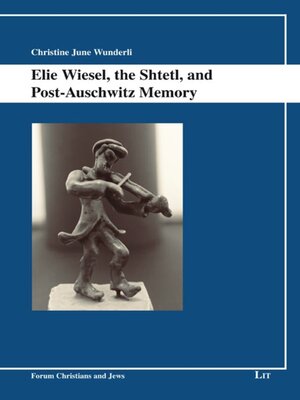
Sign up to save your library
With an OverDrive account, you can save your favorite libraries for at-a-glance information about availability. Find out more about OverDrive accounts.
Find this title in Libby, the library reading app by OverDrive.



Search for a digital library with this title
Title found at these libraries:
| Library Name | Distance |
|---|---|
| Loading... |
How are Holocaust events remembered and narrated,
and why? What knowledge can Holocaust testimony convey?
Christine June Wunderli explores these questions as she
examines four works by Holocaust survivor Elie Wiesel.
Guided by Bourdieu's theory of literary field as well as
Young's theory of literary representation, she traces
Hasidic influences in Wiesel's writing. Her conclusions are
telling: Wiesel's narratives are born as memory is pulled
towards both Auschwitz and the shtetl, caught up in the
tension between the two. Still, the emerging trajectory is
one of hope, led by a new categorical imperative.
Christine June Wunderli has worked as an
independent writer in St. John's, Canada, since 2020. Her
focus is on theology, philosophy, and Jewish Studies.
and why? What knowledge can Holocaust testimony convey?
Christine June Wunderli explores these questions as she
examines four works by Holocaust survivor Elie Wiesel.
Guided by Bourdieu's theory of literary field as well as
Young's theory of literary representation, she traces
Hasidic influences in Wiesel's writing. Her conclusions are
telling: Wiesel's narratives are born as memory is pulled
towards both Auschwitz and the shtetl, caught up in the
tension between the two. Still, the emerging trajectory is
one of hope, led by a new categorical imperative.
Christine June Wunderli has worked as an
independent writer in St. John's, Canada, since 2020. Her
focus is on theology, philosophy, and Jewish Studies.







